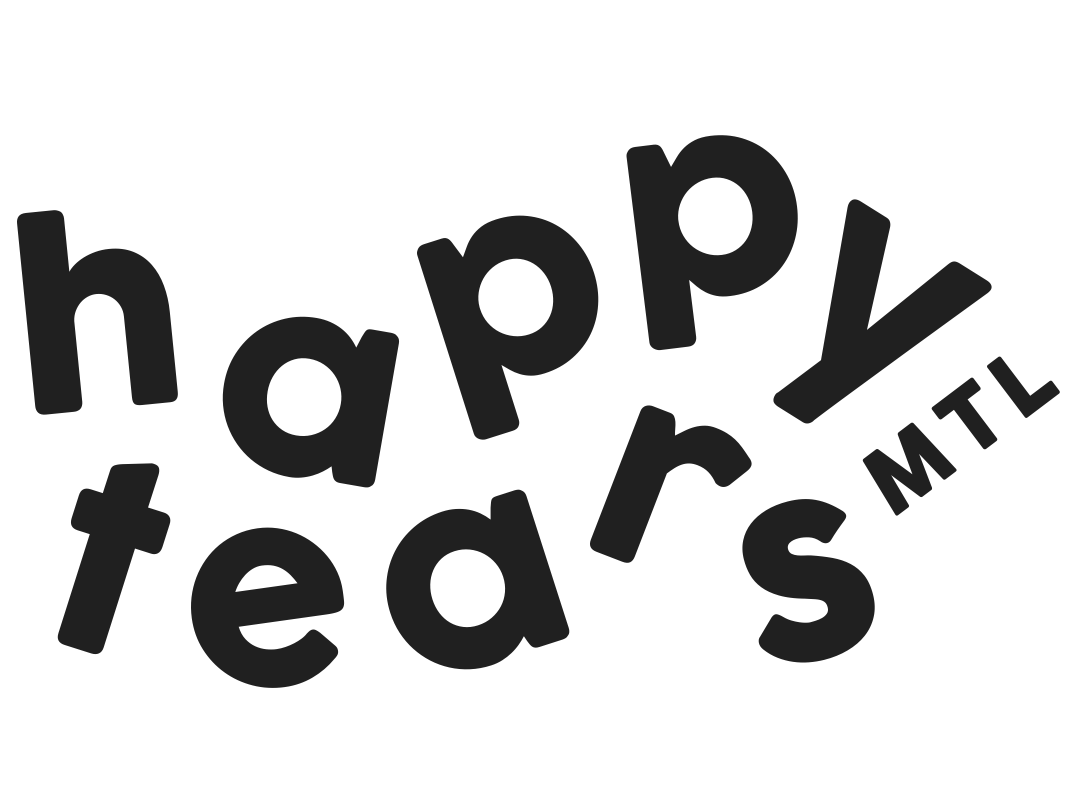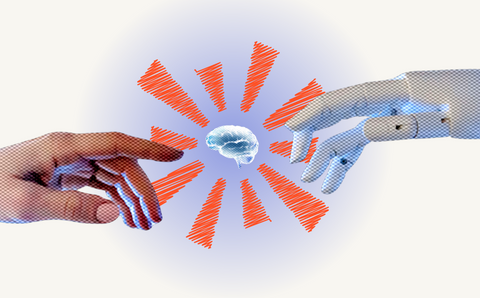May is Mental Health Awareness Month (MHAM)—a month that asks us, gently but persistently, to pause. To notice. To feel. And, if we’re lucky, to let ourselves be felt in return. At Happy Tears, we believe that nurturing meaningful connections (with self, others, and our surroundings), building a mental health tool box (which may include the Happy Tears game collection of thoughtful conversation prompts), and defining our happiness for ourselves are the cornerstones of a more conscious life.
Why Talking About Mental Health Still Matters (Yes, Still)
We know the phrase "mental health is just as important as physical health" has probably been embroidered on a throw pillow or two by now. But here's the thing: just knowing it doesn't mean we live by it. Mental health impacts how we move through the world, how we relate to ourselves, and how deeply we show up for others. Yet stigma, fear, and logistical barriers can still make getting help feel like trying to meditate in a dryer (to borrow a real description I've used with my real human therapist!).
Raising awareness doesn’t mean shouting into the void—it means whispering into it too. It’s making space for the quiet truth that mental health matters.
So... Can ChatGPT Actually Help Us With Our Mental Health?
Accessing support isn’t always as easy as downloading a meditation app and suddenly glowing from the inside out. Even in Canada, mental health services can be hard to find, waitlisted into oblivion, or simply not financially feasible. Enter: a rather surprising new player in the wellness chat—AI.
ChatGPT and other AI chatbots have become something of a modern-day pocket therapist. Okay, maybe not a therapist, but definitely a thoughtful journal with a keyboard, a solid listener with endless patience, and a surprisingly decent cheerleader. AI is by no means a replacement for a trained professional—but for some folks, it’s been a bridge. A prompt. A soft place to land.
When ChatGPT Went Viral on Reddit as a Therapy Tool
Not long ago, a viral Reddit thread made waves with a simple but loaded title: "ChatGPT has helped me more than 15 years of therapy. No joke." It opened the floodgates to thousands of stories, confessions, debates, and questions about AI’s role in mental health.
Many expressed what made ChatGPT so appealing:
-
Always on: It doesn’t sleep. (We do suggest you do, though.)
-
No judgement: Say what you need to say. Even if it’s weird. Especially if it’s weird.
-
Accessible: No appointment necessary. Pants optional.
-
Skills-based: From mindfulness exercises to reframing negative thoughts—it’s got range.
For many, these alone brought clarity—and relief.
The cons? Well, it’s still not a person. It can’t notice your body language or the emotion hiding behind your carefully chosen words. And no matter how well it simulates conversation, it cannot sit in discomfort with you in that profoundly human way a therapist or friend can.
That’s why most folks landed somewhere in the middle: AI is a helpful tool, but not a replacement for real human connection. A stepping stone, not the whole bridge.
Seeing ChatGPT as a tool in our mental health tool box for resilience, we put some thought into mindfully worded prompts that you can copy-paste into ChatGPT when you're not sure how to start the conversation.
A Starting Prompt For ChatGPT
“Hi ChatGPT. I’m reaching out today because I need some space to process what I’m feeling. I know you’re not a therapist, but I’d appreciate your help in sorting through my thoughts and emotions. I’m currently feeling [insert how you feel—e.g., overwhelmed, disconnected, unsure, anxious], and I’m navigating [briefly describe the situation—e.g., a breakup, burnout, a big transition, relationship challenges, low motivation, etc.]. It would mean a lot if you could respond with gentleness, curiosity, and care. Please ask me thoughtful questions if you need more context, and help me explore this in a way that feels validating, grounded, and empowering.”
ChatGPT Therapy Prompts For Common Mental Health Challenges
For Anxiety and Overwhelm
-
"How can I create a calming morning routine to reduce daily anxiety as a working woman?"
-
"What are simple grounding techniques I can use when I feel overwhelmed by responsibilities?"
-
"Can you help me reframe anxious thoughts about my future and career?"
-
"How do I know when anxiety is normal vs. when I should seek professional help?"
-
"Give me a 5-minute evening routine to help me mentally unwind after a stressful day."
For Burnout and Work-Life Balance
-
"How can I recognize early signs of burnout in my daily life?"
-
"What boundaries should I set to protect my mental energy as a working mom or professional?"
-
"Give me a self-care checklist I can follow when I feel emotionally drained."
-
"Help me restructure my week to include recovery time without feeling unproductive."
-
"What internal beliefs might be fueling my guilt around resting or saying no?"
For Body Image and Self-Worth
-
"Can you help me rewrite negative body image thoughts into compassionate affirmations?"
-
"How can I stop comparing my body or lifestyle to others on social media?"
-
"Give me journaling prompts to explore my relationship with my body and food."
-
"What role does self-worth play in how I see my body, and how can I shift it?"
-
"Suggest a mindful body scan meditation script to reconnect with body appreciation."
For Relationship Stress and Boundaries
-
"How can I set healthy emotional boundaries with my partner or friends?"
-
"What are some gentle ways to advocate for my needs in a relationship without guilt?"
-
"Can you help me process feelings of resentment that I have in my relationship?"
-
"Give me examples of how to say 'no' with love and clarity."
-
"Help me understand the difference between emotional intimacy and emotional dependency."
For Loneliness and Disconnection
-
"How can I make meaningful friendships in my 30s that feel emotionally safe?"
-
"What are signs I’m emotionally lonely even if I’m socially active?"
-
"Suggest ways to initiate deeper conversations with people I care about."
-
"Help me process the grief of outgrowing old friendships or community spaces."
-
"What inner work can I do to feel more connected to myself before seeking connection in others?"
For Identity Shifts (Motherhood, Career Changes, Aging)
-
"How can I gracefully navigate the shift in identity that comes with becoming a mom?"
-
"What questions can I ask myself to rediscover who I am outside of my job title?"
-
"Give me affirmations for embracing change and uncertainty in my life’s direction."
-
"Can you help me explore what parts of my past identity I want to honour or release?"
-
"What are small ways to stay grounded while I transition into a new life chapter?"
For Perfectionism and Self-Criticism
-
"Help me reframe the belief that I have to be 'perfect' to be loved or respected."
-
"What does a compassionate inner voice sound like, and how can I practice it?"
-
"Suggest exercises for letting go of control and embracing imperfection."
-
"Can you give me examples of ‘good enough’ thinking to replace all-or-nothing patterns?"
-
"How do I recognize when I'm operating from fear vs. from self-trust?"
For Depression and Emotional Numbness
-
"How can I create micro-habits that support my mental health when I feel numb?"
-
"What are small joys or rituals I can bring into my day to reconnect with pleasure?"
-
"Can you guide me through a self-compassion script for when I feel low and unmotivated?"
-
"Help me track patterns in my mood so I can better understand my emotional cycles."
-
"How do I distinguish between temporary sadness and clinical depression?"
For Fertility, Pregnancy, and Postpartum Mental Health
-
"How can I emotionally prepare myself for the uncertainty of fertility or pregnancy?"
-
"Give me self-soothing practices for navigating grief around pregnancy loss or complications."
-
"Help me understand postpartum anxiety and how to support myself through it."
-
"What affirmations can I use to feel empowered in my postpartum body and identity?"
-
"How can I involve my partner or support system in nurturing my mental well-being?"
For Social Comparison and Digital Overload
-
"How can I detox from social media without feeling disconnected from my community?"
-
"What mindset shifts help reduce comparison when I scroll through Instagram or TikTok?"
-
"Help me build a healthier relationship with social media that protects my self-worth."
-
"Suggest a digital wellness routine that honours my mental health."
-
"Can you help me examine why certain posts or people trigger feelings of inadequacy?"
A Prompt Worth Ending On
Try this the next time you finish a meaningful or helpful exchange with ChatGPT:
“Can you summarize what themes came up in our conversation today for the purpose of engaging with friends, family, and/or loved ones for support?”
Or, for a more nuanced situation:
“I would like to have a conversation with my mom who is (describe personality) and I am hesitant about sharing (insert personal challenge) with her because of (context). What would be the best approach for engaging with her about this?”
Humans: Still Kinda Magic
AI can guide. But humans can feel. A good therapist (or a really good friend) doesn’t just respond to what you say—they respond to what you don’t. They hold space. They co-regulate. They bring their nervous system into the room so yours doesn’t have to carry everything alone.
So let the chatbots be helpful. Let them prompt reflection, build skills, and ease overwhelm. But remember: healing happens in relationship. And that’s a job for humans.
This Mental Health Awareness Month, check in with yourself, maybe with your Happy Tears games in hand. What’s been most healing for you? And what would it look like to bring more of that into your everyday life?
With love 💙
Brandon




Comments (0)
There are no comments for this article. Be the first one to leave a message!